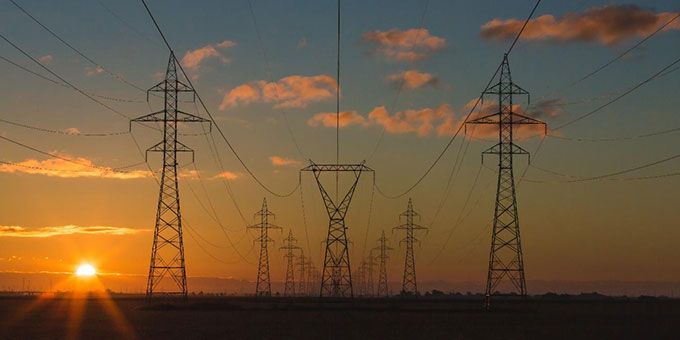With $10.5 billion available for public and private sector projects that strengthen America’s energy supply, an announcement was made over the last several days that the first round of funding has now been allocated.
 America Has New Funding for Projects That Provide Energy Resiliency
America Has New Funding for Projects That Provide Energy Resiliency

Mary Scott Nabers, President and CEO | Strategic Partnerships, Inc
A new multi-billion-dollar funding program was created recently to support energy infrastructure projects and will be overseen by the U.S. Department of Energy (DOE). With $10.5 billion available for public and private sector projects that strengthen America’s energy supply, an announcement was made over the last several days that the first round of funding has now been allocated.
A total of $3.5 billion will flow to 58 projects selected in 44 different states for funding. All the named projects are designed to make energy infrastructure climate-proof. Anticipated results include expanding clean energy suppliers, microgrid investments, and significantly increasing gigawatts of renewable energy capacity. Hardening power grids against extreme weather is also a significant priority, along with installing battery redundancy and backup generation capacity throughout the country. The plan is to ensure Americans have electricity during major weather events. It is important to note that receiving funding requires matching funds from the public or private sector. The justification for that requirement is that $3.5 billion in federal funding is expected to mobilize an overall $8 billion for the energy infrastructure investment.
A collection of projects jointly administered by the Minnesota Department of Commerce and two power region operators now has approximately half a billion dollars and will begin launching projects soon. The funding will support planned projects that carry a projected cost of $1.5 billion. Five high-voltage transmission lines will be installed in the regions of the Southwest Power Pool (SPP) and the Midcontinent Independent System Operator (MISO). The transmission lines will span seven states including Iowa, Kansas, Minnesota, Missouri, Nebraska, North Dakota and South Dakota. Multiple types of upgrades will be installed to expand the power grid system. The new transmission lines will enable approximately 30 gigawatts of wind and solar generation in the two regions.
In Texas, the city of San Antonio’s municipally owned energy provider, CPS Energy, has received $30.2 million for its Community Energy Resilience Program. The funding includes a mandated CPS Energy matching commitment of $30.2 million for an approximate combined total investment of $60.4 million. CPS Energy has a 5-year plan to implement battery storage and smart inverters to photovoltaic developments to create islanding capabilities in simple language that will provide the capability to provide power to a location even though electrical grid power is no longer present. CPS’s funds will also support projects that improve the reliability of energy distribution with reclosers, fault sensors, capacitor banks and battery energy storage. An advanced distribution management system and a software platform for planning, engineering and integration are included to support variable renewable energy resources on the grid.
The Los Angeles Department of Water and Power received $48 million from the DOE to increase power grid reliability. The city’s Community Grid Innovation Program will provide a local match of $48 million to create a combined funding total of $96 million for the project. Implementation of the new program will take place over the next five years. The program will implement a Distributed Energy Resource Management System, a platform to control distributed energy resources like electric vehicles and chargers, energy storage systems and solar power infrastructure. The goal is to allow energy operators to respond to electrical events quickly when there is a need to rebalance the electrical system.
The city of Lake Worth Beach, Florida, will use federal GRIP funding to expand and upgrade its electrical infrastructure. City leaders will provide another $23.4 million to match the GRIP funding for a combined total of $46.8 million. Plans call for workers to install more than 60 reclosers to rebalance the local electrical system. There are also plans to increase the city’s solar capacity to seven megawatts, equip new community solar arrays with battery energy storage and incorporate fiber optic communications to ensure grid strength and reduce cyber-attack risks.
In Chattanooga, Tennessee, the local energy utility EPB has received $32.4 million from the DOE program and will match it, bringing the total for the project to $65 million. The city-owned energy provider will deploy six new microgrids to improve power reliability in remote areas of Hamilton County. Also, 268 fused lateral circuits will be buried underground to reduce the impacts of turbulent weather that wreaks havoc on above-ground power lines. The funding will also allow the replacement of hundreds of power poles. Additional funding is expected from tax-exempt bonds.
Louisiana will launch an energy resilience initiative now that $249.6 million in grant funds has been secured from the DOE. State leaders will match the same amount of funding. The stated primary goal will be to ensure that electricity and other vital energy sources are available during extreme weather. The statewide initiative will also improve statewide emergency response operations by deploying a sophisticated network of Community Resilience Hubs powered by solar and battery microgrids. A collaborative effort that involves the Louisiana State Energy Office and the University of Louisiana at Lafayette will provide oversight.
.jpg) One last word on requirements that come with the DOE fundingꟷ projects will be mandated to require small and minority business participation. Specific percentages of each project will be set-asides for these types of subcontractors. This new funding will result in thousands of new contracting opportunities and collaborative initiatives.
One last word on requirements that come with the DOE fundingꟷ projects will be mandated to require small and minority business participation. Specific percentages of each project will be set-asides for these types of subcontractors. This new funding will result in thousands of new contracting opportunities and collaborative initiatives.
The content & opinions in this article are the author’s and do not necessarily represent the views of AltEnergyMag
Comments (0)
This post does not have any comments. Be the first to leave a comment below.
Featured Product

